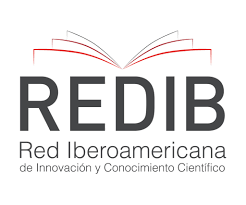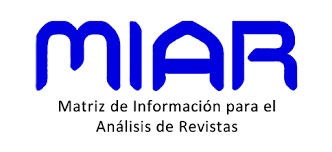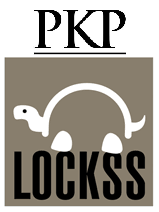Presence: an Ethic Beyond Human Intelligence
DOI:
https://doi.org/10.51743/cpe.329Keywords:
Homo sapiens, human person, personal relationship, presenceAbstract
The human being, due to his intellective faculty, has tended to be analyzed in western thought as an intelligent being, concentrating on it as only that which characterizes him and forgetting that his intellective capacity is not the totality of his being, but rather is a part of the totality of the empirical structure of the human person. Bearing in mind this fundamental (but not unique) aspect of the human being, as evidenced by Jorge Debravo’s poem, I would like to show that the human being is more than an animal reality, more than an intelligent reality, and more than an evolutionary reality. The aim of this article is to show how the personal and biographical reality of the human person transcends his own “nature”, which therefore should not be reduced to the sole intellectual capacity.
Downloads
References
Alonso Fernández, M. (2020). El hombre no tiene naturaleza. Un examen de la metafísica orteguiana. Revista de Filosofía, 45 (1), pp. 69-85. DOI: https://doi.org/10.5209/resf.68167
Alonso Schökel, L. (2005). La Biblia de nuestro pueblo. Mensajero.
Aristotele, Reale, G. (2004). Metafisica. (G. Reale, Ed.) (2 ristampa). Bompiani.
Aristotele. (2008). Politica. (C. A. Viano, Ed.) (3rd ed.). Biblioteca universale Rizzoli.
Aristóteles, Araujo, M., & Marí as, J. (1970). Ética a Nicómaco (Reimp. de). Instituto de Estudios Políticos.
Augustinus, A. santo. (1956). Tratado sobre la Santísima Trinidad. Biblioteca de Autores Cristianos.
Boethi, A. M. T. S. (1570). De duabus naturis et una persona Christi. Adversus Eutychen & Nestorium Liber quartus um commentariis Gilberti Porretae. In Anitii Manlii Severini Boethi. Philosophorum et theologorum principis opera. (pp. 1203-1219). Basileae: Henricpetrina.
Cañas Fernández, J. L. (2018). Ciencias de la persona: antropologia personalista aplicada. Dykinson.
Cantalamessa, R. (1995). Jesucristo, el santo de Dios (2nd ed.). Lumen.
Carvajal, Y. A. (2021). Jorge Debravo (1938-1967): ¿Un poeta muerto en la literatura costarricense? Repertorio Americano, 0 (30). https://doi.org/10.15359/ra.1-30.12 DOI: https://doi.org/10.15359/ra.1-30.12
D’Aquino, S. T. (1974). La somma teologica. (Domenicani italiani, Ed.) (Vol. III). Studio Domenicano.
Debravo, J. (1994). Nosotros los hombres. (E. C. Rica, Ed.) (5th ed.). San José: Editorial Costa Rica.
Denzinger, H. (1996). Enchiridion Symbolorum, Definitionum et Declarationum de rebus Fidei et Morum. (Peter Hünermann, Ed.) (2nd ed.). Bologna: Dehoniane.
Ellacuría, I. (1976). Introducción crítica a la Antropología filosófica de Zubiri. Realitas II, 1974-1975, pp. 49-137.
Gómez Álvarez, N. (2017). Julián Marías. Metafísico de la persona. Quién: Revista de Filosofía Personalista, 6, 135–137. Retrieved from http://search.ebscohost.com/login.aspx?direct=true&db=pif&AN=PHL9163028&site=ehost-live
Liddel., H. G., & Scott, R. (1996). A Greek-English Lexicon. Clarendon Press Oxford.
Marías, J. (1962). Introducción a la Filosofía. In Obras (2nd ed., Vol. II). Revista de Occidente.
Marías, J. (1982). Antropología Metafísica. In Obras (3rd ed., Vol. X). Revista de Occidente.
Montanaro Meza, O. (2007). La vigencia poética de Jorge Debravo. Comunicación. Instituto Tecnológico de Costa Rica, 16, pp. 52-57. DOI: https://doi.org/10.15517/rfl.v9i1.16465
Nigris, F. de (2016). La fertilidad teológica del pensamiento de Julián Marías. SCIO: Revista de Filosofía, 12, 77-96.
Ortega y Gasset, J. (2006). Historia como sistema y del Imperio Romano. In Fundació n José Ortega y Gasset. Centro de Estudios Orteguianos (Ed.), Obras Completas (Vol. VI). Taurus.
Rocci, L. (1993). Vocabolario greco-italiano (30th ed.). Dante Alighieri.
Sánchez, J. L. (2016). Las categorías antropológicas de Julián Marías. SCIO: Revista de Filosofía, 12, pp. 159-176.
Vilarroig-Martín, J. (2020). Antropología del hombre mortal y morituro. A propósito de la muerte en Julián Marías. Pensamiento. Revista de Investigación e Información Filosófica, 76 (291 Extra), pp. 1173-1183. DOI: https://doi.org/10.14422/pen.v76.i291.y2020.018
Zubiri, X. (1980). Inteligencia sentiente. Alianza.
Downloads
Published
How to Cite
Issue
Section
License
The author reserves the rights (copyright) of the published works, and the journal encourages and allows their reuse, from the preprint. The works are published in the electronic edition of the journal under a license "Creative Commons Attribution / Attribution-NonCommercial 4.0 International Public License - CC BY-NC 4.0", and can be copied, used, disseminated, transmitted and publicly exhibited.
The author / s partially transfer the property rights (copyright) of this work for the printed and online editions, provided that:
- The authorship and original source of its publication (magazine, publisher and URL of the work) is cited.
- Are not used for commercial purposes.
- The existence and specifications of this user license are mentioned.
It also declares to have respected the ethical principles of research and to be free from any conflict of interest.
"C.P.E." encourages the authors and the scientific community to the maximum promotion and dissemination of the works in their final version through:
1) Your list of contacts (emails) and social networks (Facebook, Twitter, LinkedIn ...).
2) Institutional repository of your University and public repositories (Mendeley, Cosis ...).
3) Scientific social networks (ResearchGate, Academia.edu, Kudos ...).
4) Personal or institutional website, blog, etc.
5) Google Scholar, ORCID, ResearchID, ScopusID, Dimensions, PlumX ...
6) Printed copies purchased directly and sent to specialists for reading and subsequent citation if appropriate.




















1.png)
1.png)

1.png)





.png)
.png)

.png)
1.png)
1.png)
